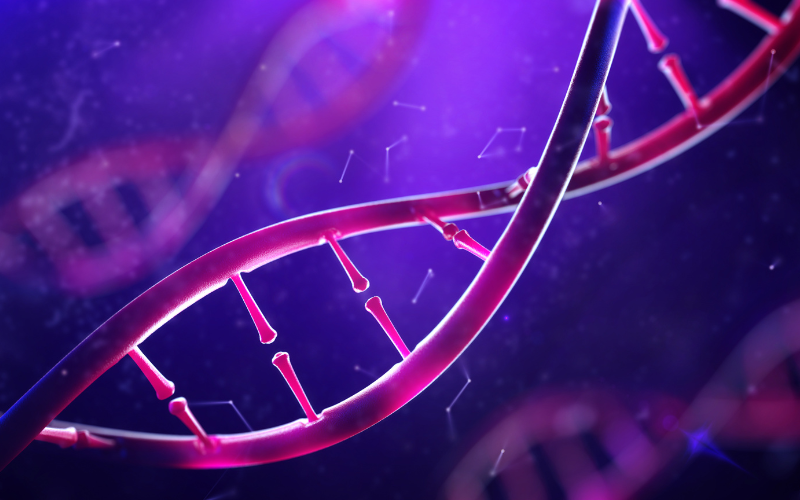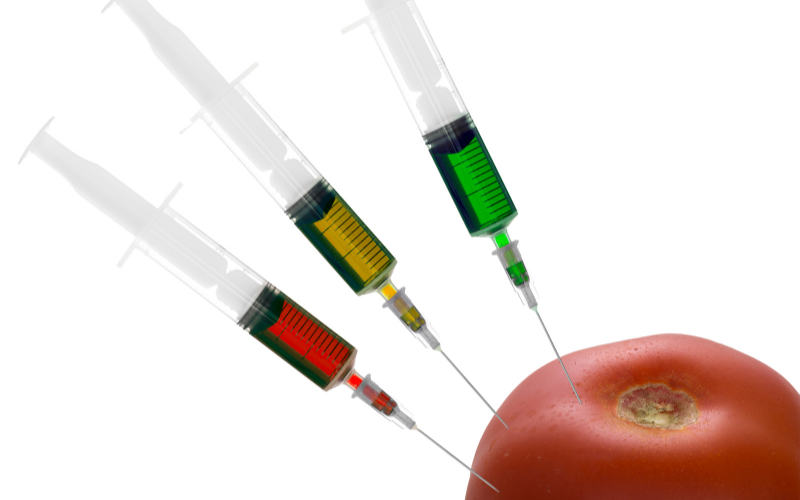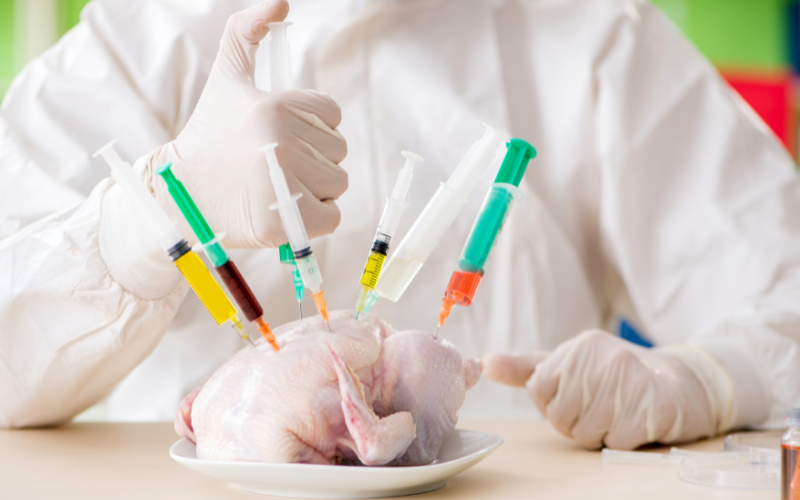Species identification and microbiological contamination of food products remain a continual challenge for all stakeholders, including public health officials, food manufacturers and processors, and retailers., An extensive testing process helps ensure that food for consumption is safe and healthy.
The development and use of DNA-based technologies such as genomic sequencing are increasingly playing a role in this regard by enabling researchers to identify species and contaminants within various foodstuffs more accurately. As such, these advanced genetic tests are becoming an indispensable part of the global food safety testing landscape across industries.
Food Traceability

Using genomics, scientists can identify various properties in food that can help ensure its safety and quality. One of the primary uses for genomics in food testing is Meat Traceability, where genomics helps identify the source of meat and the animal. The information can help to ensure that meat products are safe for human consumption and avoid foodborne illnesses.
In addition to identifying unknown sources of contamination, genomics can also help track meat back to its origins. DNA analysis on processed meat- ground beef or chicken nuggets, can help to verify whether every piece was from the same animal or flock and not mixed with other animals or herds. Genomic technology also allows tracking of the production process and a better understanding of any potential risks associated with consuming the food.
By utilizing genomics in food testing, producers can assure customers that their products are safe and of high quality. Additionally, by knowing their food source, consumers can make informed decisions about the types of food they choose to purchase and consume. As such, genomics plays a vital role in food testing and traceability, helping to ensure that consumers have access to safe, high-quality products.
Enables Rapid Species Identification
Genomics has become an essential tool for food safety testing in recent years. Using sophisticated genetic analysis, scientists can quickly and accurately identify the species of a given food sample. For example, in 2013, concerns over horse meat content led to a large-scale recall in Europe and some parts of North America when scientists found traces of horse DNA in beef products. The scandal resulted from retailers selling beef products labeled beef with horse meat.
Also, in December 2017, authorities detected traces of horse DNA in some beef lasagne dinners from frozen supermarket shelves. Thus, the role of genomics in food safety is crucial for public health purposes. It enables rapid identification and informs on potential risks associated with certain foods. Genomics enables quick species identification, which prevents illegal trade and food fraud.
Enables Identification of Adulterants in Processed Food

Genomics is playing an increasingly important role in the detection and identification of adulterants in processed foods. Genomic techniques, such as whole genome sequencing, allow for the rapid identification and quantification of contaminants in a food sample. With this technology, food safety officials are better able to quickly detect and trace back contaminants that may be present in processed foods. It also helps to identify better the potential risks associated with certain ingredients.
Genomic techniques provide a much more comprehensive view of the food sample than traditional methods. Whole genome sequencing allows for identifying unique genetic markers that distinguish between different varieties and sources of adulterated foods. These markers can help to accurately identify the specific type of adulterant present, allowing for a much more targeted approach to ensuring food safety.
Enables Rapid Pathogen Characterization
Genomics is becoming an increasingly important tool in food testing, helping to ensure the safety and quality of the food supply. Using genomics-based methods, scientists can rapidly characterize and detect foodborne pathogens, allowing health officials to quickly identify any risks and take the necessary steps to mitigate them.
The process of genome sequencing involves mapping the entire genetic sequence of an organism in food, revealing critical information such as its identification, structure, function, and evolutionary relationships. Additionally, these tests provide detailed results fast, are more accurate, and offer greater sensitivity and specificity for detecting pathogens in food. Using this method, scientists can accurately identify and characterize pathogens, helping them identify potential food safety risks and mitigate them.
GMO Testing

Genomics has become a critical tool in food testing, allowing us to detect the presence of GMOs and assess the safety of our food. Genomics is a branch of molecular biology that studies the structure and function of genes.
Using genomic technologies such as DNA sequencing, researchers can identify specific genetic markers in food samples and determine whether they are from GMO sources. That way, it’s possible to authenticate GMO-free labels on products that claim this distinction and ensure they meet specific criteria related to agricultural practices, processing methods, or packaging.
Conclusion
Genomics has become an essential tool for the food industry in recent years, as it allows for quick and accurate food testing. With the advancement of genomic technologies, food companies can now identify potential contaminants and GMOs, detect foodborne pathogens, and even trace food from the store to the source. In addition, by sequencing the DNA of bacteria and other microorganisms, food producers can quickly identify any potential safety hazards.
That allows them to adjust production processes to reduce contamination risk. It also helps to prevent illegal trade and food fraud. Overall, genomics is an invaluable tool for the food industry, allowing for fast and accurate testing of food to ensure that food products are safe and compliant with regulations.
